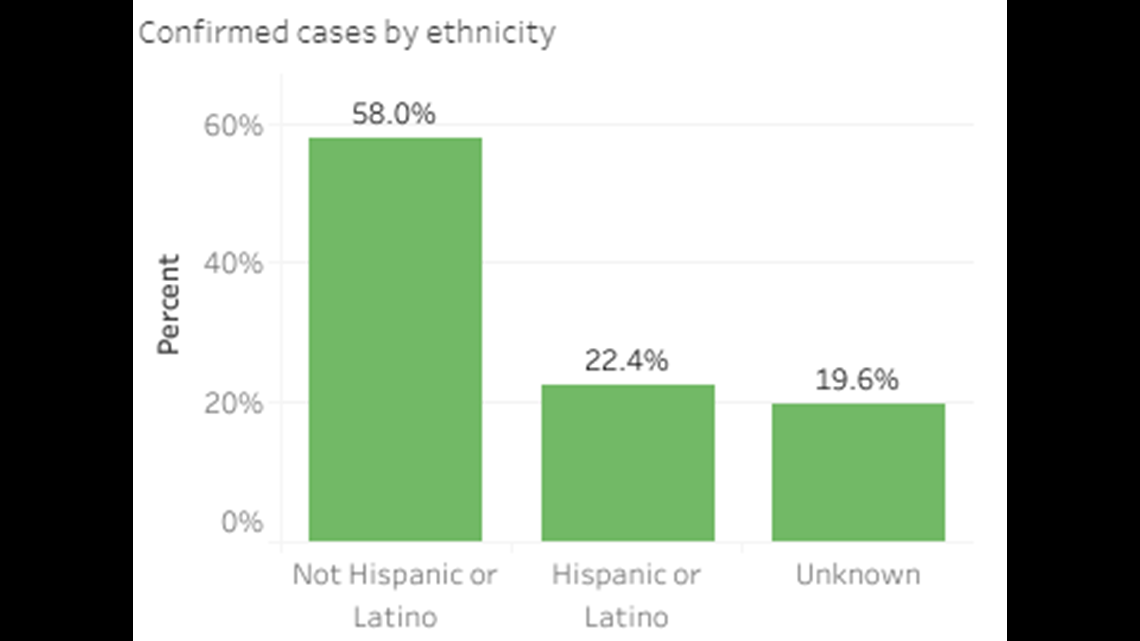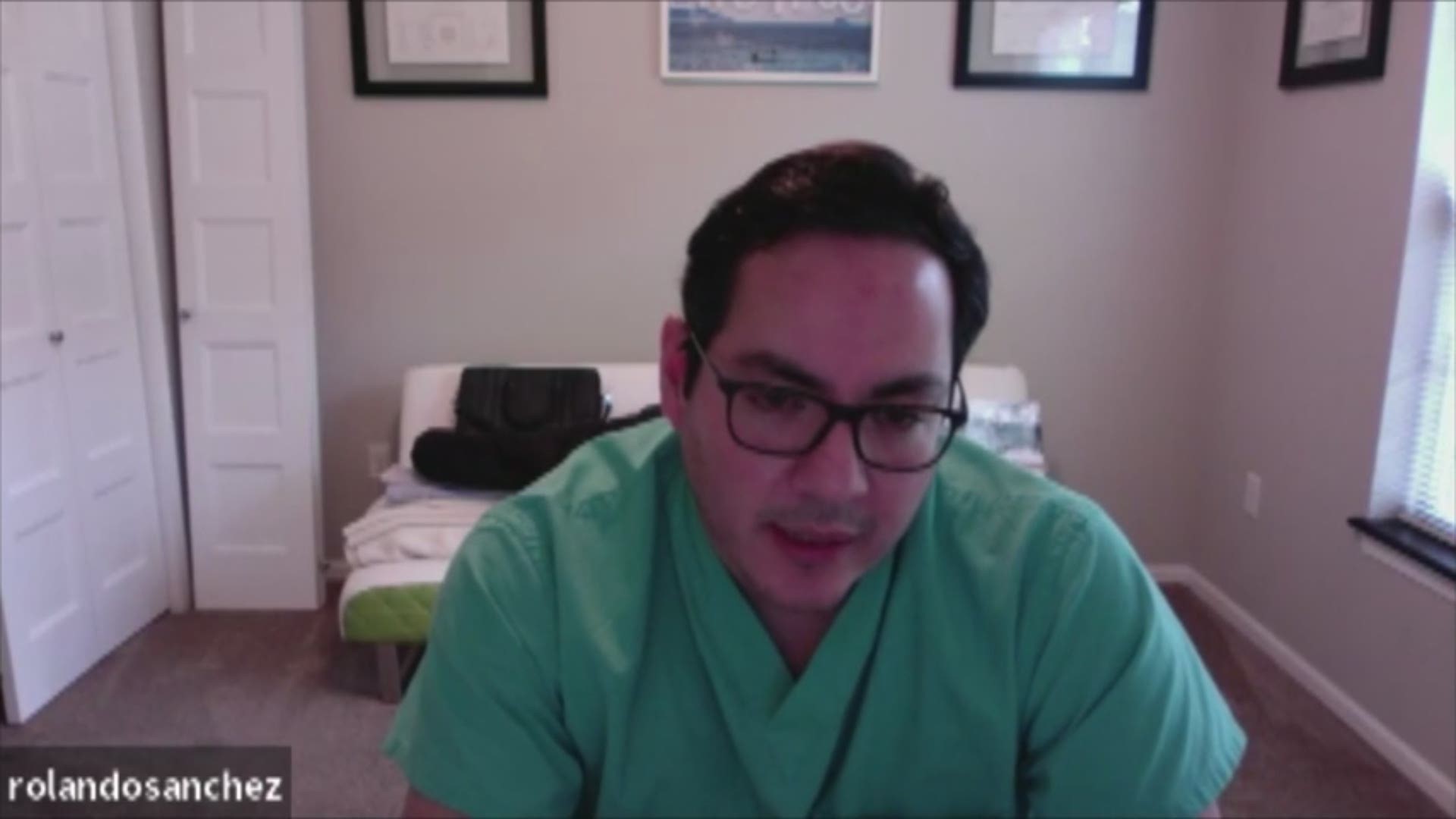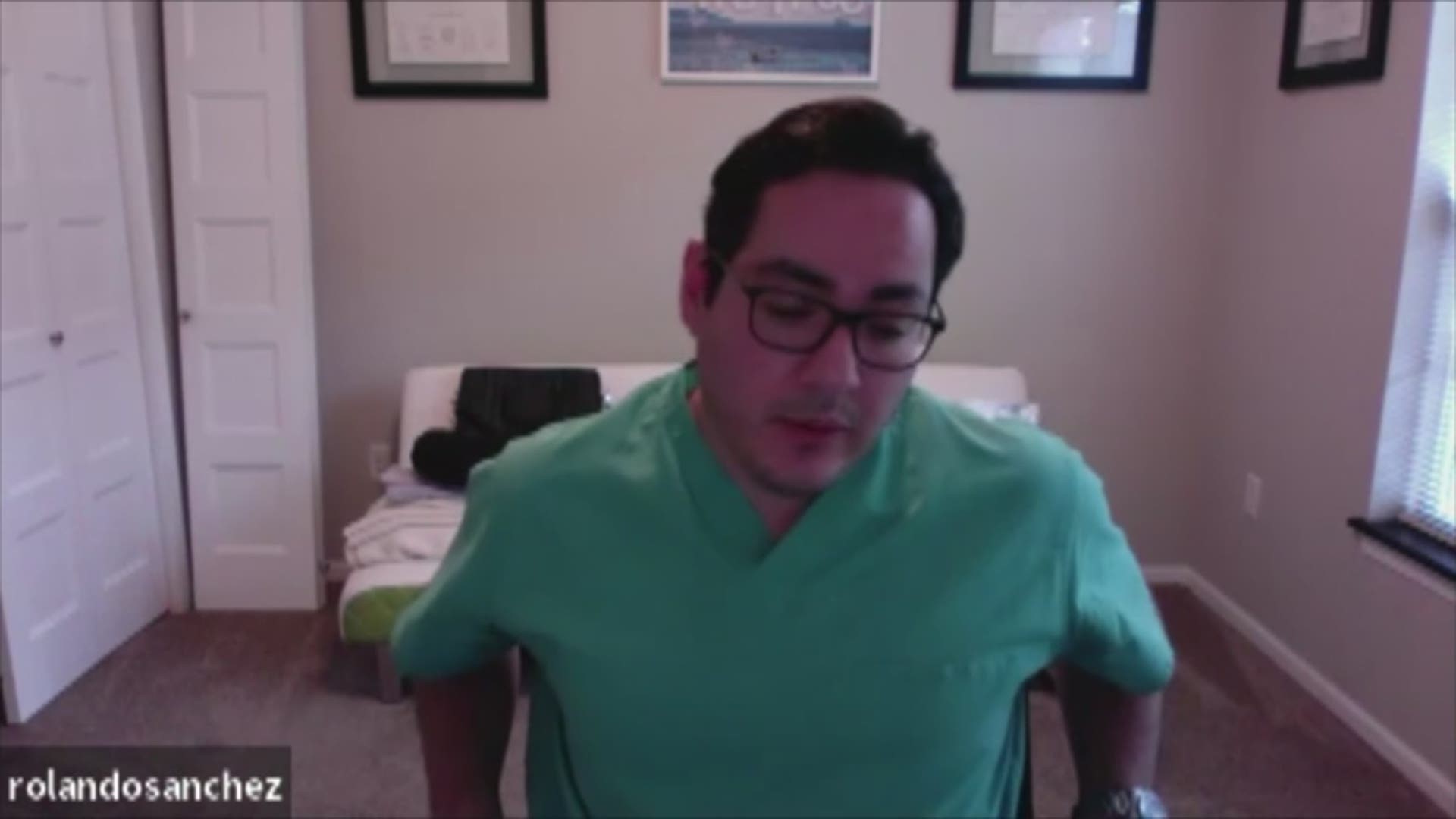IOWA CITY, Iowa —
Para una versión en español, haga clic aquí.
Dr. Rolando Sanchez came to the University of Iowa in 2014 to work as a pulmonologist at the university's hospitals and clinics, focusing on the intensive care unit. Flash forward six years and now the first-generation immigrant from Peru is using his medical skills and Spanish-speaking background to help coronavirus patients and their families during a global pandemic.
"It's a roller coaster of emotions," said Dr. Sanchez after a long shift at the hospital. "But that's what I love about medicine. It humbles you."
Sanchez has been treating coronavirus patients for weeks. Recently, his unit saw a steady increase in ICU patients. Many were coming from Columbus Junction, about a 40-minute drive from Iowa City. A Tyson packing plant reported an outbreak of coronavirus, killing two workers. Soon, Sanchez's wing of the hospital was being filled with packing plant workers, many of whom are Latino.
"My first interaction with one of them was a few weeks ago when I was on call," said Sanchez. "I could see the fear in their eyes and I could see how scared they were....wondering if they're going to die. They don't speak the language. Most of them don't speak English. Imagine being in a room with so many machines, cables, hooked to your body and you don't understand what's going on. Not many people are coming to your room because you're in isolation. You're not allowed to see your family. And it's scary for them. It was very heartbreaking because I could see how scared he was and he knew that he was pretty sick."
Sanchez said as he worked more with these Latino patients, he and his team could see a real need for translation services between the families and the medical professionals caring for the patients. Now, he and a few other Spanish-speaking team members have split up the Latino patients and coordinate Zoom or Facetime calls with family members to keep them in the loop.
"These family members, many of them don't speak English, and suddenly they have to face the fact that a family member is sick, and the last time they saw the family member, they were walking around and now they're being placed on a ventilator," said Sanchez. "And now they are faced with situations and decisions with treatments they have never heard of before. So it's just overwhelming."
Latinos make up about 6% of Iowa's population, but there is a disproportionate number of Iowa Latinos who are testing positive from coronavirus. The state has confirmed more than 22% of the confirmed cases are Latinos. 148 Iowans have passed away from coronavirus, but the state has yet to provide demographic breakdowns of the victims. Sanchez pointed out that Latinos tend to have underlying conditions that are risk factors for coronavirus, such as diabetes. Testing at packing plants only started about two weeks ago, and it hasn't been implemented at every plant in Iowa yet. Latinos make up a large part of the meatpacking plant workforce.


"The virus moves so fast," said Sanchez. "These family members have to learn that their loved one's kidneys are failing and that they need dialysis and so on. And remember, it's hard because you can't see your family members because you're on the phone. They can't process this and they can't see you. And you don't know if you're going to be able to see them again, alive. That generates so much suffering and pain and you can see that."
Every press briefing, Gov. Kim Reynolds outlines the latest number of cases, deaths, recovery rate, and so on for the state. Sanchez said that families, stories, and faces need to be connected to those numbers.
"That's the problem with numbers. They're just numbers to people," said Sanchez. He said that's why he wants his story out. "Imagine if you knew every single person with coronavirus. Each of them has a family, a father, a mother, those numbers have a face and tremendous suffering around that person."
Sanchez said while he understands leaders need to find a way to get the economy back up, relaxing social distancing guidelines and reopening the state in certain areas could lead to catastrophic consequences.
"I would just ask the advice from the experts," said Sanchez on what he would advise the governor. "There are experts in Iowa. And they will tell you what is the best way to phase this pandemic...I don't know who is advising the governor. I mean I'm sure they mean well. But if you don't know and you're not an expert in the subject, you could make the wrong decisions...everybody thinks that they're an expert, and you hear so many people have an opinion."
On Friday, hundreds of restaurants, fitness centers, retail shops, and other shops will reopen in 77 of Iowa's 99 counties. Reynolds said on Wednesday that she doesn't want to "punish half of the state" with strict guidelines. She said she will be monitoring what happens in those counties and is prepared to dial back up the restrictions. The state does not have the capacity to test every Iowan right now, nor every Iowan living in those 77 counties with the lifted restrictions.
RELATED: 'It's not a mandate, it's an option': Gov. Reynolds defends her decision to reopen the state
"When I see people complaining about not being able to go to a famous restaurant, I wonder if they could only know how lucky they are and to have their family members," said Sanchez.
Sanchez does not live in a county with the lifted restrictions. He said for now, he is going to continue to care for his patients and communicate with their families about this deadly virus. He said he's been humbled by working during the pandemic.
"It's you against the clock. The difference is that it's the race to save somebody or not," said Sanchez. "But it's not always like that, because even when you know you can't save somebody, you can at least help them die with dignity."


